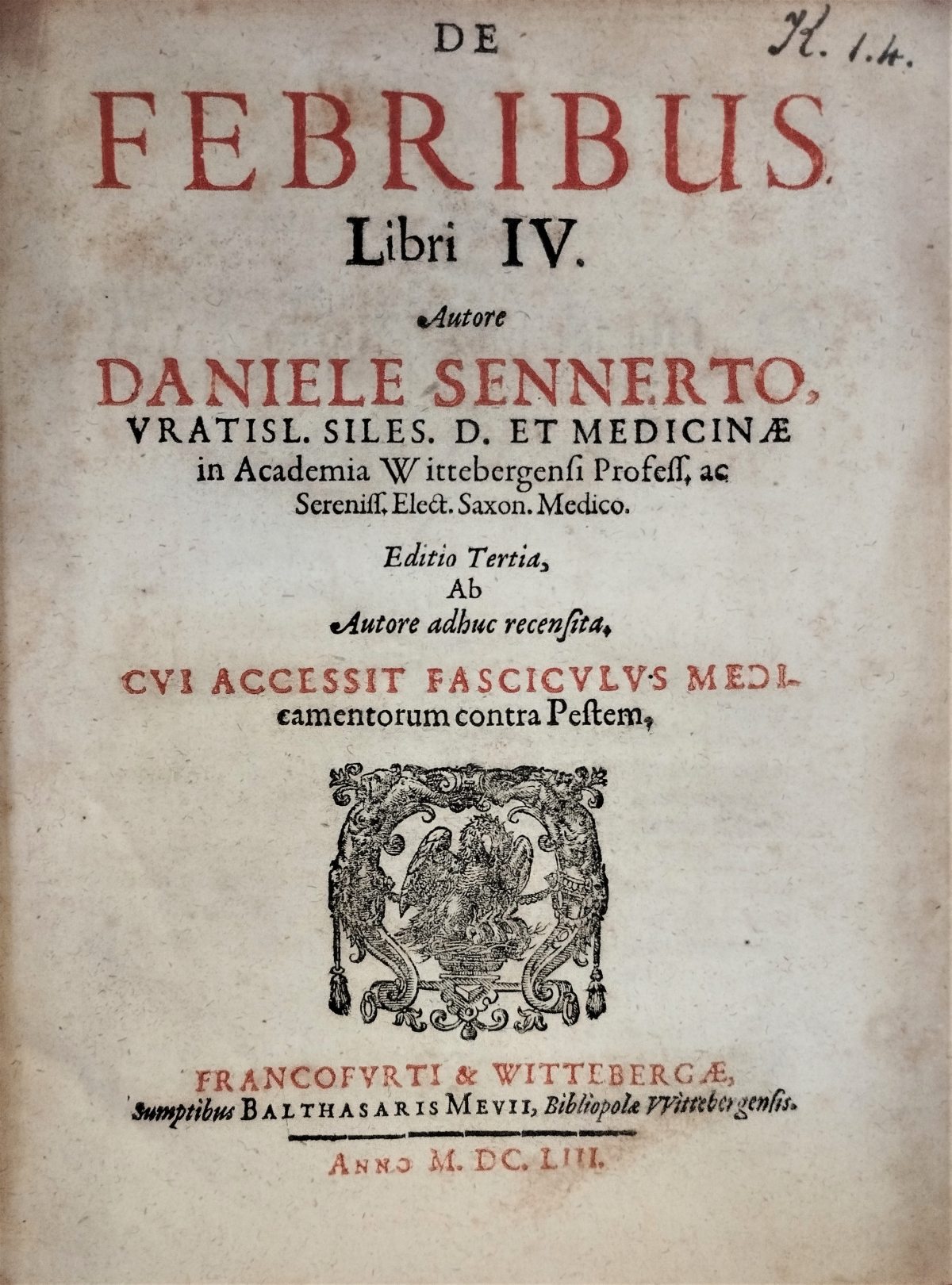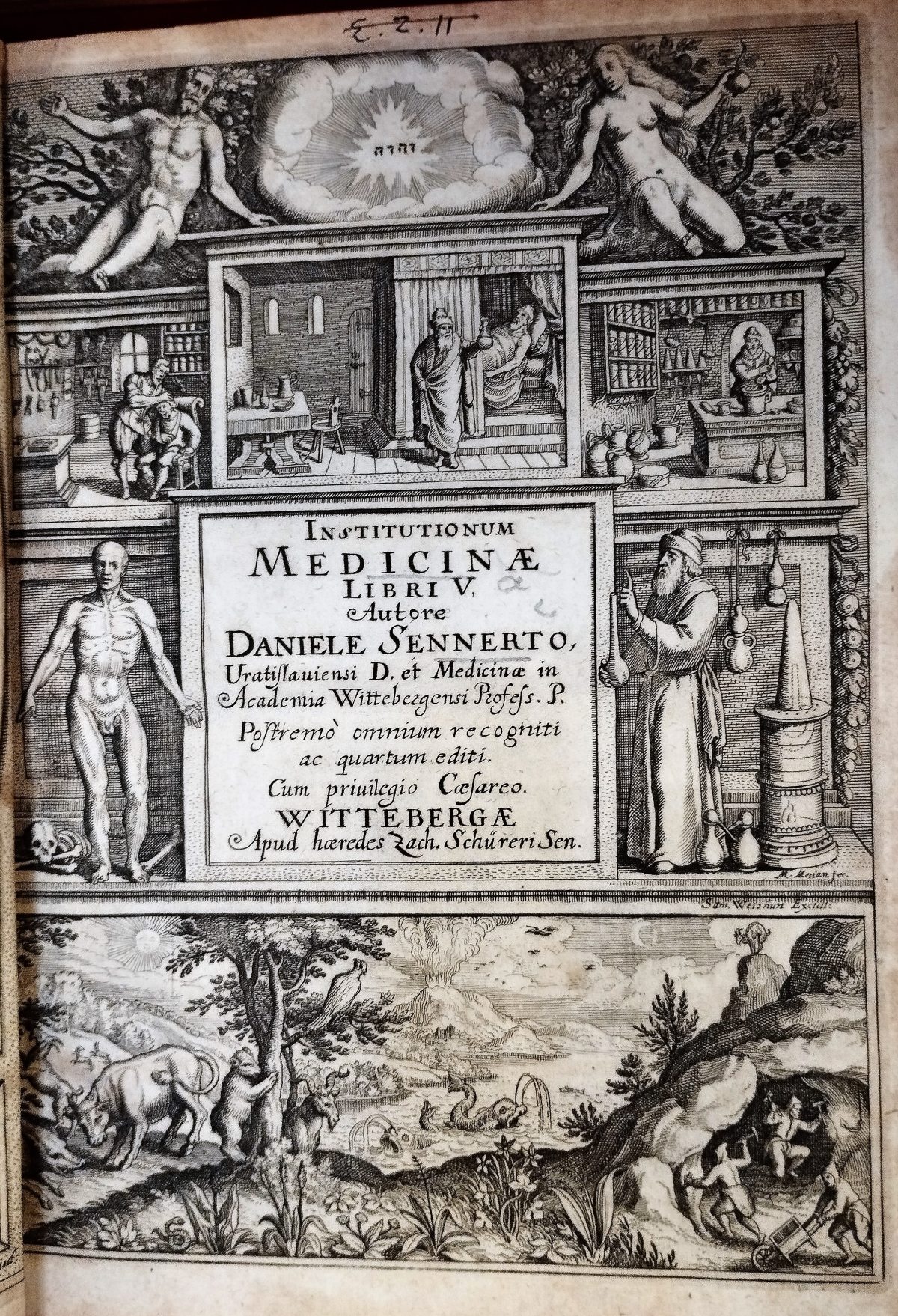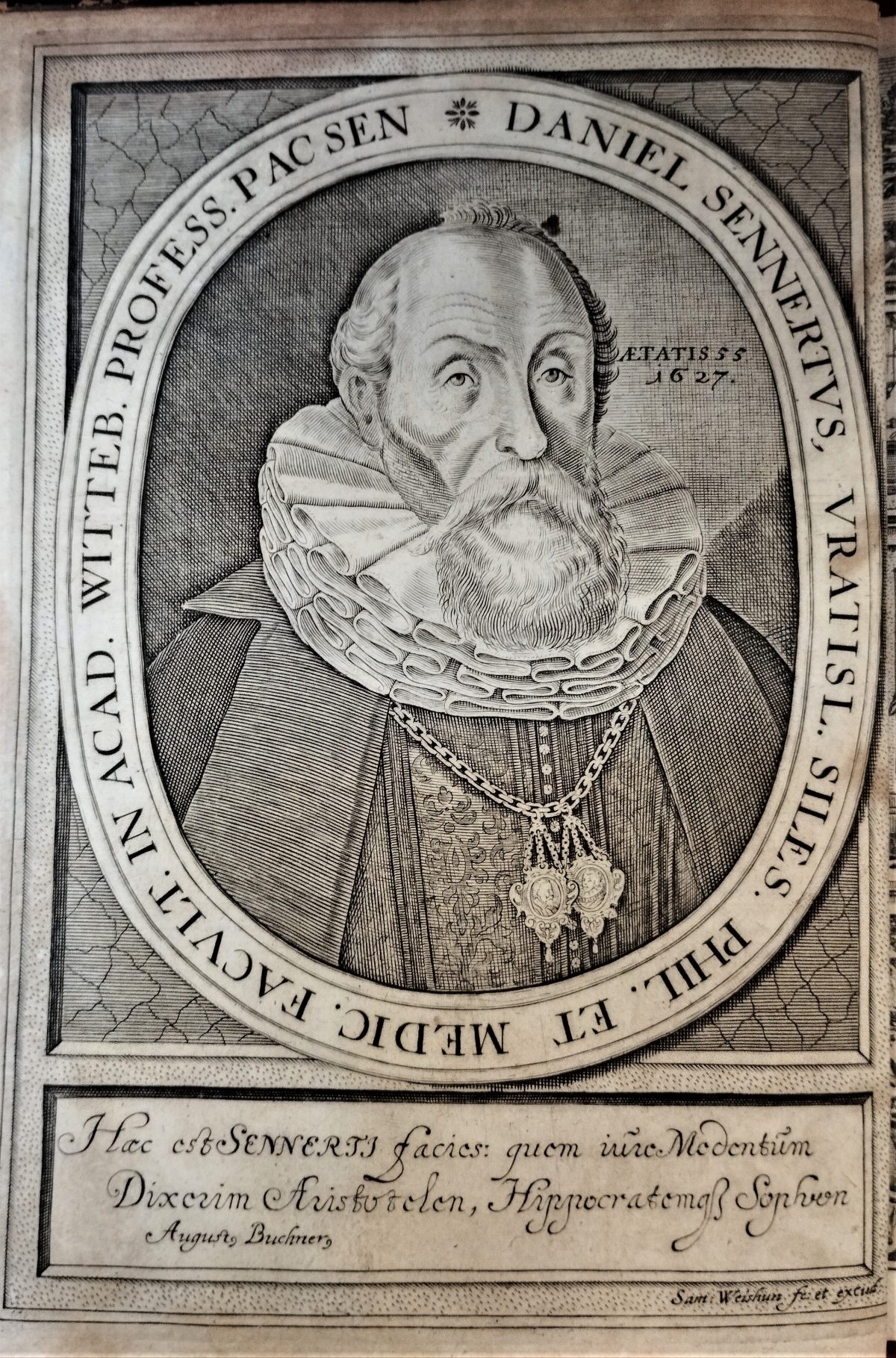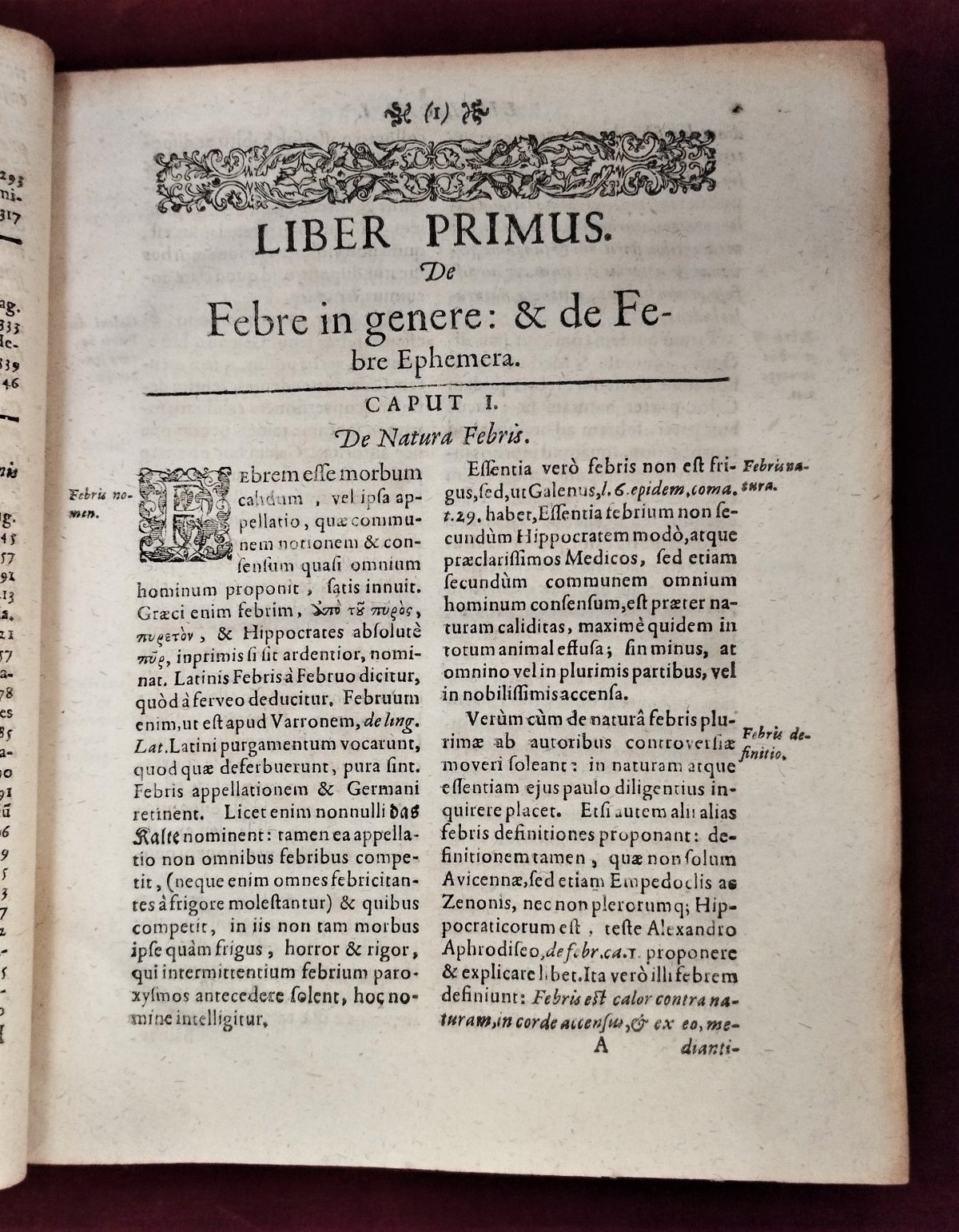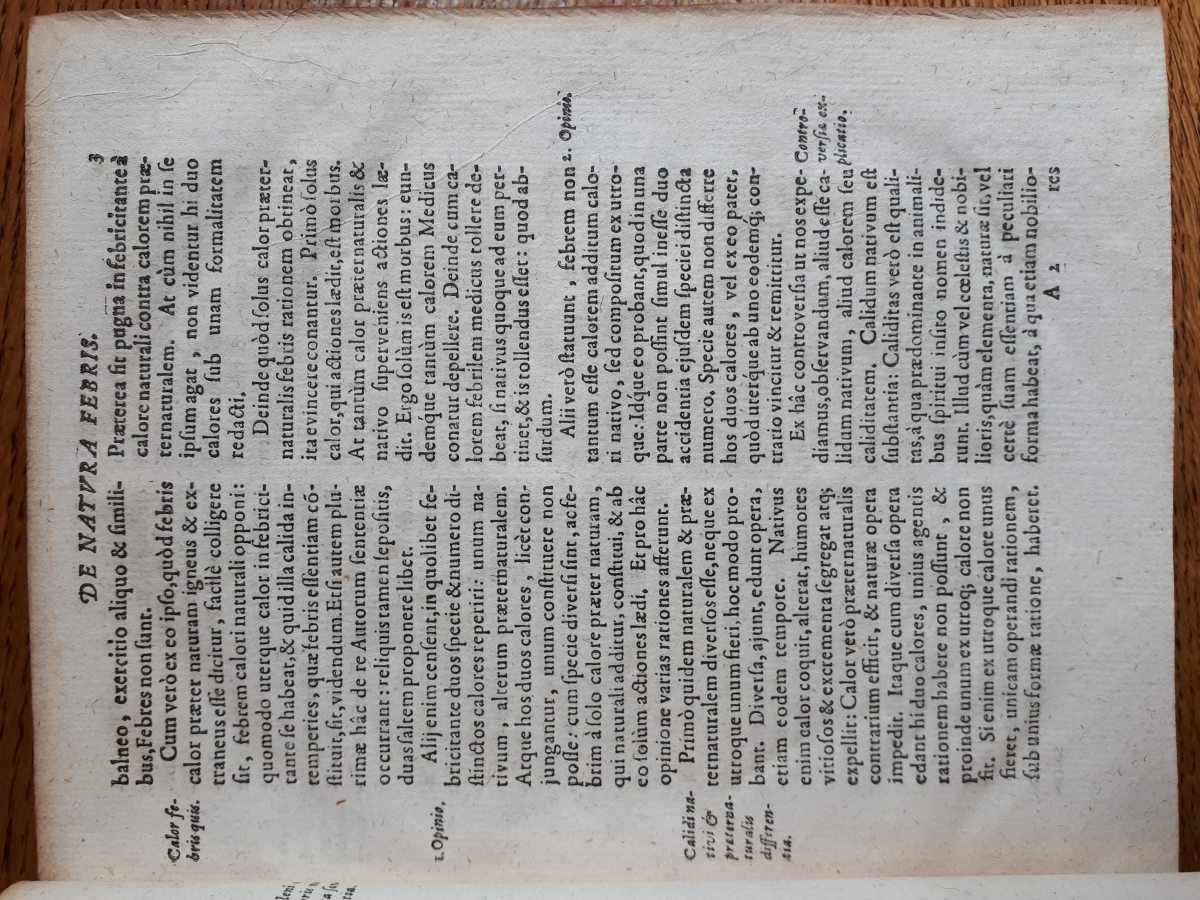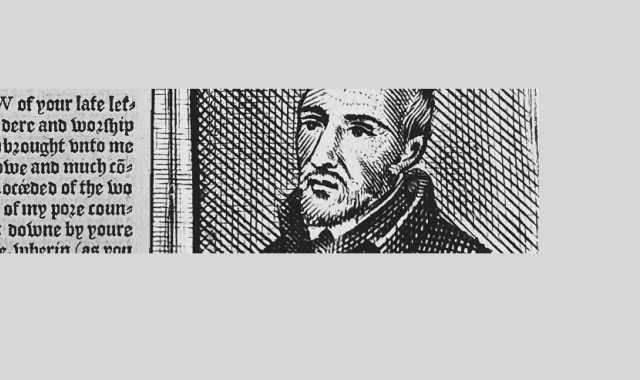On fever and golden eggs
De febribus libri IV (On fever, in four books), by Daniel Sennert. Printed in Frankfurt by Balthasar Mevius, 1653. Lower Library, K.1.4
Early modern physicians worked in a world ‘not of quantities, but of qualities’,1 as well illustrated by their ideas on fever. The Wittenberg professor Daniel Sennert (1572–1637), who ‘attempted to reconcile the theories of Aristotle, Galen, Paracelsus, and the supporters of [atomism]’,2 first published his De febribus in 1619. Like his contemporaries, he follows the doctrine developed especially by Galen’s medieval Islamic commentators, Ibn Sina (or Avicenna) and Ibn Rushd (Averroes), that fever is an unnatural kind of heat, distinct from and added to the body’s natural heat.
Iain M. Lonie notes that writers of the time ‘invested a great deal of time and energy’ in explaining the relation of the two heats.3 Sennert’s solution – that although distinct substances, both shared the quality of ‘hotness’ – seems to make little difference to the classical treatments he recommends, which include bloodletting, baths, ‘cooling’ diets, and medicines to assist the natural ‘concoction’ of the four humours.
Sennert argues in another book that medicines made from precious metals could strengthen natural heat and thus aid the body’s recovery from disease, and notes with interest a report that hens fed on silver or gold leaf for a month were found when slaughtered to contain ‘countless’ silver or golden eggs. He repeated the experiment of the ‘philosophical hen’ himself without success.4
The first monograph << On fever and golden eggs >> Against the quacks
- David Wootton, Bad Medicine: Doctors Doing Harm Since Hippocrates (Oxford: Oxford University Press, 2006), 57.
- Hans Kangro, ‘Sennert, Daniel’, in Dictionary of Scientific Biography, ed. Charles Coulston Gillespie, vol. 12 (New York: Charles Scribner’s Sons, 1975), 311.
- Iain M. Lonie, ‘Fever Pathology in the Sixteenth Century: Tradition and Innovation’, Medical History, supplement no. 1 (1981): 22.
- Joel A. Klein, ‘Daniel Sennert, the Philosophical Hen, and the Epistolary Quest for a (Nearly-)Universal Medicine’, Ambix 62, no. 1 (2015): 29–49. Klein uses the term ‘innate heat’.


